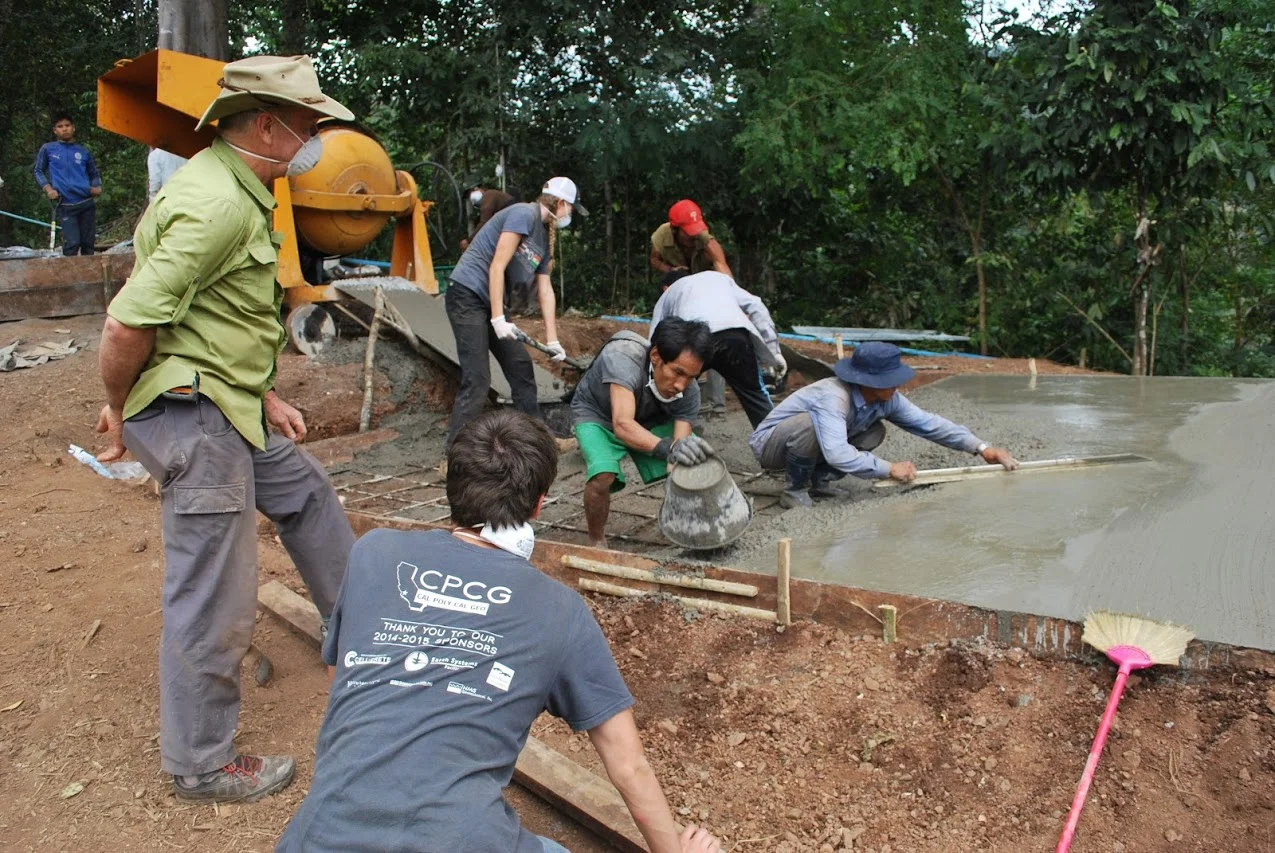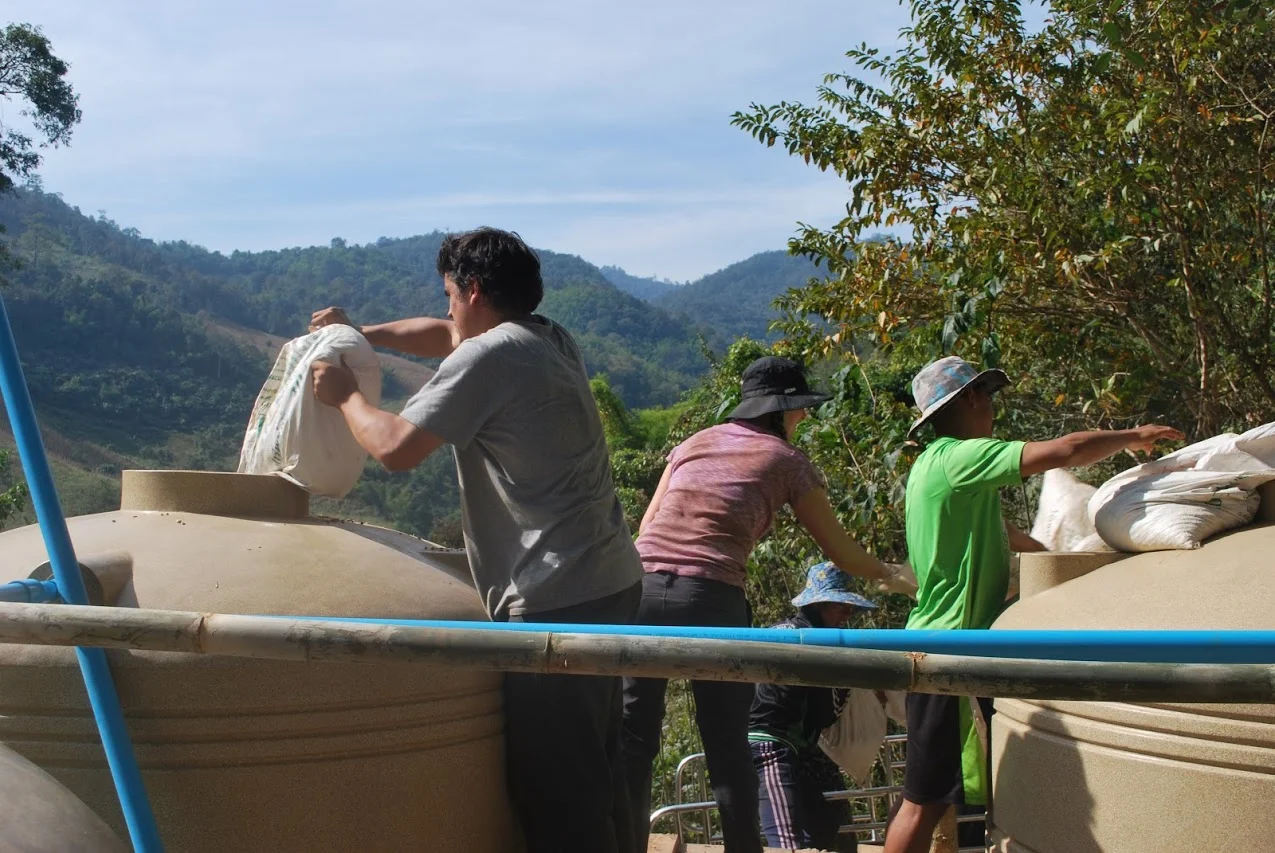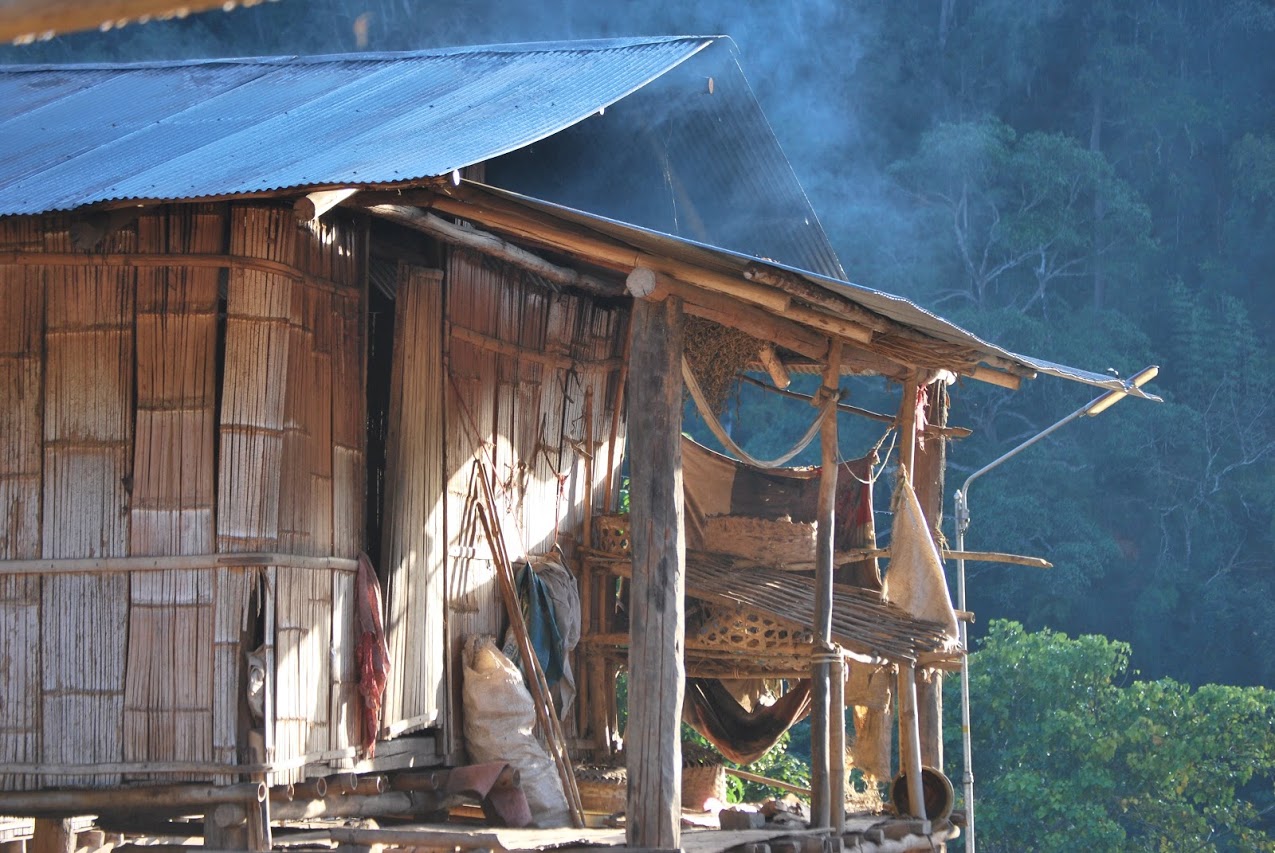About The Thailand Project
The Thailand team is officially closed out of all projects in Thailand. Due to EWB-USA 2.0, all EWB teams across the nation are finishing up current projects, but unable to start new ones in Thailand. The Thailand teams has a rich history of many projects, incredible team members, and unforgettable experiences. Starting in 2005, we were one of the first teams in EWB-USA and the first project team here on Cal Poly’s campus. We are proud of the work we have done, but even more proud of the lessons we have collectively learned over the years regarding “development” work. Our biggest advice to anyone working in this field is to learn first and then design. Take time to learn the culture, learn about the community, learn about the project you are wanting to develop, and only after this do we encourage you to design and build. We would like to thank you all for the support throughout the years and we are so thankful for all the people who have contributed to this team!
Thailand Project Timeline
2005
March: First Assessment Trip
Team Thailand’s first partner community, Huai Nam Khun. Huai Nam Khun is located in the northeast region of the Chiang Mai province. Students traveled to the community to assess drinking water quality at the Wittaya School. During this assessment, the travel team discovered the 800+ students at the school were drinking dirty water that was piped from a government implemented dam up the river.
December: Filtration System Implementation
The Thailand student team designed and implemented a single slow sand filtration system at the school to provide the children with treated drinking water. The purpose of the slow sand filter was to combat the spread of diseases caused by water borne illnesses in the stored water supply.
2009
December: Assessment Trip
Students traveled on an assessment trip to address and resolve issues pertaining to the operations of the slow sand filters. Such issues included the arrangement of a security fence to prevent school children from tampering with the filtration systems and providing an improved operations manual incorporating a new color-coding system for the valves and pipes. During this trip the team met with leaders in the Huai Nam Khun community and decided to implement 6 more slow sand filter systems in 6 different communities in the surrounding area.
2011
September: Post-Implementation Monitor Trip
The team traveled on the first post-implementation monitoring trip. The main purpose of this trip was to monitor the filters implemented in December 2010. Water quality testing was completed at all sites to confirm that the filters were functioning properly. Additionally, the team evaluated operator understanding of the systems and held further training sessions. During the trainings, the operators were given new operator manuals to ensure that the filters would continue to provide the communities with potable water. Community wide interviews were taken to gain a better understanding of the use and maintenance of the systems.
2013
June: Maejantai Agriculture Project and Energy Project
Assessments for Maejantai Agriculture project and Energy project. The composting project will proceed with design for implementation.
Project Completion
Completion of assessment for the Energy project. The team focused on the civil assessment for the project and completed a comprehensive topographic map, conceptual design, materials study, cost analysis, and community discussion. After installing the slow sand filters, the team worked with Maejantai, a community in Huai Nam Khun, on two projects: a micro-hydroelectric system (Energy 915) and an organic composting system (Agriculture 914). The team prematurely closed the hydroelectric project due to inter-community relations. Currently the team is completing a final monitoring phase and analysis for the water project. Both Maejantai and Huai Nam Khun have developed greatly since the team’s arrival in 2006, and it was mutually decided that EWB Cal Poly’s resources could be used to help another community that is less developed.
2015
June: Suspension Bridge Project
Assessment trip for a suspension bridge structural project.
December: Pa Kloi Assessment Trip
Traveled to Pa Kloi to assess the feasibility of various alternative energy designs for the community. On this trip, the team also visited Huai Nam Khun and performed monitoring for the slow sand filters there. During the assessment trip, the team performed an electrical load analysis of Pa Kloi’s outdated photovoltaic (PV) system and assessed their energy needs. After discussion with community members, a solution was determined, and the team collected all data and pertinent information required to prepare for a proposed implementation in June 2016.
2017
March: Assessment Trip
Assessment trip to perform water quality tests and collect data for water filtration project.
December: Implementation Trip
Implementation trip of the slow sand filters in Pa Kloi.
2008
June: Implementation and Evaluation
Another slow sand filter was implemented to double the water supply to the school due to increased demand. During this same trip, the students organized workshops on constructing household slow sand filters. Health surveys were conducted and water quality tests were administered in order to actively track the progress and impact of the slow sand filters, as well as evaluate the changing community needs.
2010
June: Concrete Framework implementation
Students traveled on the first of two implementation trips for this phase of the project. Concrete pads were constructed for the slow sand filters and the roughing filters. Each system has one 14ft x 6ft pad for the two slow sand filter tanks and one 6ft x 6ft pad for the roughing filter, both of which are 6in thick. The community demonstrated excitement over the project by their willingness to contribute to its construction. At each site, community members were the largest factor in efficiently prepping the site, assembling formwork for the concrete, and mixing concrete. The team held meetings before and after the construction process, to which the headman of each community receiving a slow sand filtration system was invited. Their response to the implementation was enthusiastic and thankful, and the Memorandum of Understanding was signed.
December: Sand Filter Wrap-up
The team spent a full month working with the Huai Nam Khun community to finish the slow sand filter project that began in 2005. The purpose of the trip was not only to build the slow sand filtration systems, but to also share with the communities the knowledge necessary to maintain and even duplicate the project in the future. Because maintenance is such a crucial part of the project, two of the travel team members were given the task of teaching the community representatives and the communities as a whole about their new filtration systems. In order to complete a project of this magnitude in the relatively small amount of time that was available, community participation was crucial. Two major meetings were held over the course of the trip. First all six headmen as well as the slow sand filtration system operators were invited to a meeting, where the travel team gave a presentation on the project and what would be needed to make the trip successful. Another meeting was held before the team left to announce the completion of the project. With the help of translators, both meetings ran smoothly and were very successful. In addition, workshops were held and operators were trained to facilitate and increase successful technology transfer. In all, six complete slow sand filtration systems were constructed, each consisting of a roughing filter, two parallel slow sand filters, and a storage tank.
2012
June: Second Monitor Trip
With such a vast and impactful implementation, the team conducted a second monitoring trip in June 2012 to complete the full technological transfer of the systems. The travel team conducted thorough water quality testing and held extensive operator trainings. This data was gathered to compare to previous testing after 18 months of function, and to determine the current state of the systems. At each site, the water quality team ran a system of water quality tests, both at the head-tank and storage tank, to determine if the slow sand filters were in fact improving the quality of the water. Operator training was also conducted to verify that every operator was still taking care of the systems and that they were informed enough to be able to train future operators.
December: Monitor and Assessment
Monitor implemented slow sand filters, conduct final slow sand filter workshop, and make two minor design changes to systems. Assess remaining needs in Huai Nam Khun area, focusing on communities of Jasae and Mae Chan Tai. Upon further community conversations, conducted full technical and cultural assessment of organic composting station and initial assessment of hydroelectric system in Mae Chan Tai.
2014
June: Hydroelectric Project Cancellation
Monitor the implemented composting piles in Mae Jan Tai. During this trip the hydroelectric project was canceled due to political reasons within neighboring communities.
December: Compost Project Completion
The Thailand team travels to Mae Jan Tai to monitor the implemented composting piles and close out that project. They also traveled to the Chiang Dao region of Thailand to visit a few different communities to access the feasibility of their projects. During this trip the partnership with Pa Kloi was started.
2016
June: Last Pa Kloi Assessment Trip
Final assessment trip for the photovoltaic project in Pa Kloi. This included taking data at the solar array and powerhouse, holding community discussions, and getting the implementation agreement signed.
2019
August: Monitoring Trip
Monitoring trip of the slow sand filters and assessment of whether or not the modified spring box project is still needed by the community.
December: Thailand Program Closed
Final monitoring trip of the Pa Kloi slow sand filters and project and program close out. This was the last trip taken by the Thailand Team.




